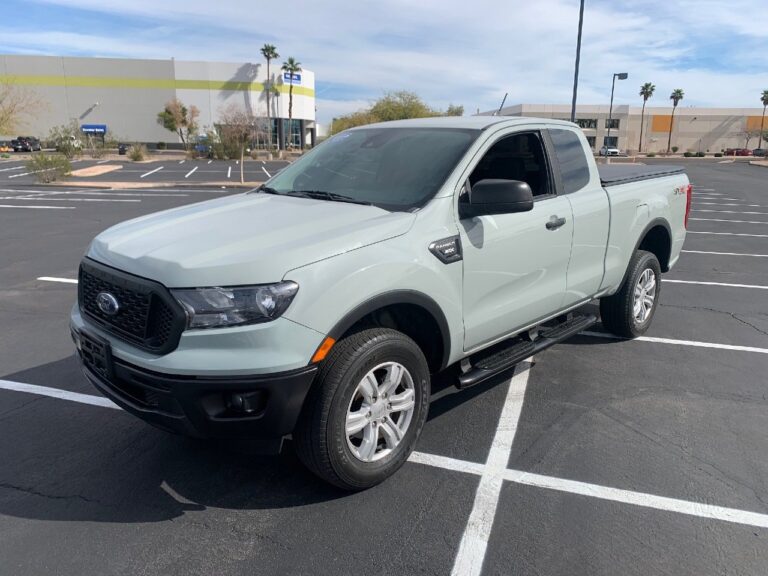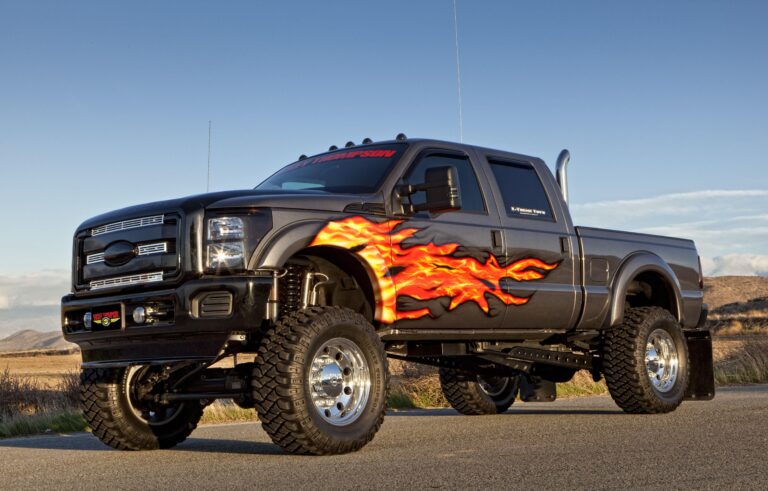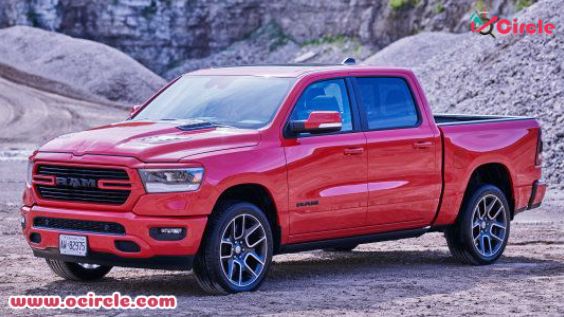U-Haul Trailer Rental Pricing: Your Comprehensive Guide to Cost-Effective Moving
U-Haul Trailer Rental Pricing: Your Comprehensive Guide to Cost-Effective Moving cars.truckstrend.com
Moving, whether across town or across the country, often brings with it a myriad of logistical challenges, not least of which is transporting your belongings. For many, U-Haul trailers emerge as an indispensable solution, offering flexibility, affordability, and the capacity to haul everything from a few boxes to an entire vehicle. However, understanding U-Haul trailer rental pricing can feel like navigating a complex maze, with costs influenced by a variety of factors beyond just the trailer size. This comprehensive guide aims to demystify U-Haul trailer rental pricing, providing you with the insights, tips, and practical information needed to make an informed and budget-friendly decision for your next move.
Understanding U-Haul Trailer Types and Their Impact on Price
U-Haul Trailer Rental Pricing: Your Comprehensive Guide to Cost-Effective Moving
U-Haul offers a diverse fleet of trailers, each designed for specific hauling needs. The type and size of the trailer you choose will be the foundational element determining your rental cost.
1. Cargo Trailers
These enclosed trailers are ideal for protecting your belongings from weather and theft. They come in various sizes, with larger trailers generally costing more.
- 4’x8′: Smallest enclosed option, perfect for college dorm moves, small apartments, or extra storage.
- 5’x8′: A popular choice for one-bedroom apartments or small moves.
- 5’x10′: Suitable for larger apartments or small homes.
- 6’x12′: The largest enclosed option, often used for two to three-bedroom homes.

2. Utility Trailers
Open-top trailers designed for hauling oddly shaped items, landscaping materials, or anything that doesn’t require protection from the elements. Many include a ramp for easy loading.
- 4’x7′: Smallest utility trailer, good for small projects.
- 5’x8′: Versatile for furniture, appliances, or yard work.
- 5’x10′: Larger capacity for bigger projects or multiple items.
- 6’x12′: The largest utility trailer, often chosen for moving large furniture, ATVs, or construction materials.
![]()
3. Car Trailers

Specialized trailers for transporting vehicles, offering a safe and secure way to move your car, truck, or SUV.
- Tow Dolly: A two-wheel trailer that lifts the front wheels of the towed vehicle off the ground. More economical, but generally for front-wheel drive vehicles or specific towing requirements.
- Auto Transport: A four-wheel flatbed trailer designed to carry an entire vehicle. Provides maximum protection and is suitable for all types of vehicles.
The general rule is: the larger the trailer and the more specialized its function (like auto transports), the higher the base rental price will be.
Key Factors Influencing U-Haul Trailer Rental Pricing
Beyond the type and size, several dynamic factors contribute to the final cost of your U-Haul trailer rental. Understanding these can help you anticipate expenses and potentially save money.
1. Rental Duration
U-Haul offers daily rates for in-town (local) rentals. If you need the trailer for multiple days, the daily rate will be multiplied by the number of days you rent it. One-way rentals are priced differently, often as a flat fee for the entire trip, regardless of the exact number of days, though there is a grace period before late fees apply.
2. One-Way vs. In-Town (Local) Rentals
This is arguably the most significant pricing differentiator.
- In-Town (Local) Rental: You pick up and return the trailer to the same U-Haul location. These are generally much cheaper, often advertised with low daily rates (e.g., starting from $14.95).
- One-Way Rental: You pick up the trailer at one location and drop it off at a different U-Haul location. One-way rates are considerably higher and vary wildly based on demand, distance, and availability between the two locations. U-Haul uses a dynamic pricing model similar to airline tickets, where prices fluctuate based on inventory and demand for specific routes.
3. Location and Demand
The city or region where you rent and return the trailer can influence pricing. Areas with high demand or limited availability for certain trailer types may see higher prices. Similarly, if there’s an oversupply of a particular trailer in one location and a shortage in another, U-Haul might adjust one-way pricing to encourage movement of that equipment.
4. Time of Year / Peak Seasons
Moving season (late spring through summer, especially end-of-month and holiday weekends) sees the highest demand for U-Haul equipment. Prices, particularly for one-way rentals, tend to surge during these periods. Conversely, renting in the off-season (fall and winter) can often result in lower rates.
5. Availability
If a specific trailer type is scarce in your area, its price might be higher due to limited supply and increased demand. Booking well in advance can sometimes mitigate this, especially during peak times.
6. Additional Coverage / Insurance Options
U-Haul offers optional protection plans like "Safetow®" for trailers. While not legally required, these plans cover accidental damage to the trailer and sometimes even your towing vehicle or cargo. Adding this coverage will increase your overall cost, typically by an extra $8-$15 per day for trailers. It’s crucial to check your personal auto insurance policy to see if it extends coverage to rented trailers before deciding on U-Haul’s options.
7. Add-ons and Accessories
If your towing vehicle isn’t equipped, you might need to rent or purchase a hitch, wiring harness, or ball mount from U-Haul. These costs are separate from the trailer rental. Moving supplies (boxes, dollies, blankets) are also available for purchase, adding to your total expense.
How to Get a Quote and Book Your U-Haul Trailer
Getting an accurate quote is straightforward but requires specific information.
- Visit U-Haul’s Website (Recommended): The online reservation system is the most efficient way to get a quote.
- Go to U-Haul.com and select "Trailers."
- Enter your desired pickup date, location, and return location (if one-way).
- Specify the type of trailer you need (e.g., "Cargo Trailer," "Auto Transport").
- The system will display available trailers and their estimated pricing for your specific dates and locations. For one-way rentals, it will show the total estimated cost for the trip. For in-town rentals, it will show the daily rate.
- Call U-Haul Customer Service: You can call their reservation line, but online is often faster for quotes.
- Visit a U-Haul Location: Staff can provide quotes, but online is still best for dynamic pricing.
Understanding the Quote Breakdown:
The online quote will typically show:
- Base Rental Rate: The primary cost for the trailer.
- Estimated Taxes: Applicable sales tax.
- Optional Safetow®/Protection Plan: If you select it.
- Estimated Total: The sum of the above.
- Fuel: Remember, you are responsible for fuel costs for your towing vehicle.
Comprehensive Price Table: U-Haul Trailer Rental Estimates
Please note: U-Haul pricing is dynamic and subject to change based on location, availability, demand, and time of year. The prices below are estimates for in-town daily rentals and are provided for general guidance. One-way rental prices will be significantly higher and vary wildly based on the specific route and current demand.
| Trailer Type | Approx. Dimensions (LxW) | Typical Daily In-Town Rate Range* | Max Load (Approx.) | Notes |
|---|---|---|---|---|
| Cargo Trailers | Enclosed, ideal for protecting belongings from weather/theft. | |||
| 4’x8′ | 8’x4′ | $14.95 – $19.95 | 1,600 lbs | Smallest enclosed. Good for small apartments, dorms, or extra items. |
| 5’x8′ | 8’x5′ | $18.95 – $24.95 | 1,800 lbs | Popular choice for 1-bedroom apartments. |
| 5’x10′ | 10’x5′ | $28.95 – $34.95 | 2,000 lbs | Suitable for larger apartments or small homes. |
| 6’x12′ | 12’x6′ | $34.95 – $44.95 | 2,500 lbs | Largest enclosed. Best for 2-3 bedroom homes. |
| Utility Trailers | Open-top, versatile for various items. Many include a loading ramp. | |||
| 4’x7′ | 7’x4′ | $14.95 – $19.95 | 1,700 lbs | Smallest utility. Good for light hauling, small projects. |
| 5’x8′ | 8’x5′ | $18.95 – $24.95 | 1,600 lbs | Versatile for furniture, appliances, yard work. |
| 5’x10′ | 10’x5′ | $28.95 – $34.95 | 1,600 lbs | Larger capacity for bigger items or multiple loads. |
| 6’x12′ | 12’x6′ | $34.95 – $44.95 | 2,470 lbs | Largest utility. Ideal for large furniture, ATVs, construction materials. |
| Car Trailers | Specialized for vehicle transport. | |||
| Tow Dolly | N/A | $44.95 – $59.95 | 3,900 lbs | Lifts front wheels of towed vehicle. More economical. Not for all vehicles. |
| Auto Transport | 14’8"x6’8" | $54.95 – $69.95 | 5,290 lbs | Flatbed, carries entire vehicle. Most secure option. |
* Important Note on One-Way Pricing: One-way rental prices are significantly higher than daily in-town rates and are determined by demand, distance, and availability for your specific route. A one-way auto transport from California to New York could cost upwards of $700-$1000+, while an in-town rental is a fraction of that. Always get a specific quote for one-way moves.
Tips for Saving Money on Your U-Haul Trailer Rental
While U-Haul pricing is dynamic, there are strategies you can employ to minimize your costs.
- Book in Advance: Especially during peak moving season or for one-way rentals, booking early can secure better rates and ensure availability.
- Be Flexible with Dates: If your schedule allows, consider renting during weekdays instead of weekends, or during off-peak seasons (fall/winter) for potentially lower rates.
- Choose the Right Size: Don’t overpay for space you don’t need. Estimate your cargo volume accurately. However, also avoid underestimating, as needing a second trip or a larger trailer last minute can be more costly.
- Consider In-Town vs. One-Way Carefully: If you’re moving a short distance and have the time, multiple in-town trips might be cheaper than a single one-way rental, even with fuel costs. Calculate the break-even point.
- Understand Insurance Options: Check if your personal auto insurance or credit card provides coverage for rented trailers. If so, you might be able to decline U-Haul’s additional coverage, saving a significant amount.
- Verify Your Towing Vehicle’s Capacity: Ensure your vehicle meets U-Haul’s towing requirements and has the correct hitch and wiring. If you need to install a hitch or wiring, consider doing it yourself or having a mechanic do it before your rental to avoid U-Haul’s installation costs.
- Return on Time: Avoid late fees by returning the trailer by the agreed-upon time.
- Look for Promotions: Occasionally, U-Haul or third-party sites might offer discounts or promotions. It’s worth a quick search, though they are less common for trailers than for trucks.
Potential Challenges and Solutions
Despite careful planning, you might encounter some challenges related to pricing.
- Unexpected Price Hikes: The online quote is an estimate. While usually accurate, high demand on the day of pickup or unforeseen circumstances could slightly alter the final price. Solution: Confirm your reservation details upon arrival and review the contract before signing.
- Limited Availability: Especially for specific trailer types or during peak season, your desired trailer might not be available. Solution: Book well in advance. Consider alternative trailer sizes or types if your first choice isn’t available. Be flexible with pickup locations if possible.
- Misjudging Trailer Size: Renting a trailer that’s too small means extra trips and more fuel, potentially negating savings. Too large means wasted money. Solution: Use U-Haul’s online space estimator or consult with a U-Haul representative to help determine the right size for your belongings.
Frequently Asked Questions (FAQ)
Q1: Is U-Haul trailer pricing fixed?
A1: No, U-Haul’s pricing, especially for one-way rentals, is dynamic and varies based on demand, availability, location, and time of year. In-town daily rates are more stable but can still have slight regional variations.
Q2: Can I rent a trailer one-way?
A2: Yes, most U-Haul trailers are available for one-way rentals. However, be prepared for significantly higher costs compared to in-town rentals.
Q3: What’s included in the base rental price?
A3: The base price covers the use of the trailer for the specified duration. It does not include fuel for your towing vehicle, optional insurance, hitch installation, or moving supplies.
Q4: Do I need insurance for a U-Haul trailer?
A4: While not legally mandatory, U-Haul offers "Safetow®" protection plans. It’s highly recommended to check if your personal auto insurance policy extends coverage to rented trailers before deciding on U-Haul’s options.
Q5: What kind of vehicle do I need to tow a U-Haul trailer?
A5: Your towing vehicle must meet specific requirements, including having the correct towing capacity, a hitch receiver, and proper lighting connections. U-Haul’s website has a "Tow a Trailer" section where you can input your vehicle details to see if it’s compatible and what equipment you might need.
Q6: Can I rent a trailer without a hitch on my vehicle?
A6: No, your vehicle must have a hitch receiver and proper wiring for the trailer lights. U-Haul offers hitch installation services, but this will be an additional cost.
Q7: Are there any hidden fees with U-Haul trailer rentals?
A7: Generally, U-Haul is transparent about its pricing. Potential "hidden" costs usually arise from not understanding the dynamic pricing for one-way rentals, opting for additional services (like hitch installation), late returns resulting in extra charges, or damage to the trailer without a protection plan. Always review your quote and contract carefully.
Conclusion
Navigating U-Haul trailer rental pricing doesn’t have to be a source of stress. By understanding the different trailer types, the key factors that influence cost, and by employing smart booking strategies, you can confidently secure the right trailer at the right price for your moving needs. Remember that flexibility, careful planning, and a thorough review of your options are your best tools for a cost-effective and successful move. With this comprehensive guide, you’re now equipped to make informed decisions and tackle your next hauling project with clarity and confidence.






